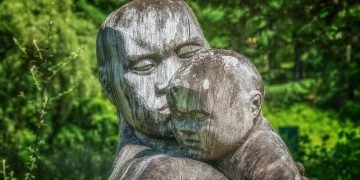Unlocking the Power of Curiosity: A Guide to Education for Lifelong Learners
Curiosity is a powerful force that drives learning and growth. It is the engine of intellectual exploration and the key to unlocking new possibilities. For lifelong learners, curiosity is not just a trait, but a mindset that propels them forward on a journey of continuous discovery and self-improvement. In this guide, we will explore the importance of curiosity in education and provide practical tips on how to cultivate and harness this powerful force for lifelong learning.
The Importance of Curiosity in Education
Curiosity is often described as the desire to know and understand the world around us. It is the fuel that drives exploration, inquiry, and experimentation. In the context of education, curiosity plays a crucial role in motivating students to engage with new ideas, concepts, and information. When students are curious, they are more likely to actively seek out knowledge, ask questions, and pursue deeper understanding.
Research has shown that curiosity is closely linked to academic achievement, creativity, and critical thinking skills. Students who are curious are more likely to excel in their studies, think outside the box, and solve complex problems. Curiosity also fosters a sense of wonder and awe, which can inspire a lifelong love of learning.
Cultivating Curiosity in Education
Curiosity is a natural human trait that can be nurtured and developed through intentional effort. As educators, parents, and lifelong learners, there are several strategies we can use to cultivate curiosity in ourselves and others:
Encourage Questions
One of the most effective ways to foster curiosity is to encourage questions. Encourage students to ask why, how, and what if. Create a safe and supportive environment where curiosity is valued and rewarded. Be open to exploring new ideas and perspectives, even if they challenge your own beliefs.
Embrace Uncertainty
Curiosity thrives in uncertainty. Encourage students to embrace ambiguity and complexity. Teach them to see uncertainty as an opportunity for growth and exploration, rather than a barrier to understanding. Help them develop the resilience and adaptability needed to navigate unknown territory.
Provide Hands-On Learning Experiences
Hands-on learning experiences are a powerful way to spark curiosity and engagement. Encourage students to explore, experiment, and discover for themselves. Provide opportunities for them to observe, question, and analyze real-world phenomena. Encourage them to take risks, make mistakes, and learn from failure.
Harnessing the Power of Curiosity for Lifelong Learning
Curiosity is not just a trait that benefits students in the classroom – it is a mindset that can transform the way we approach learning and personal growth throughout our lives. For lifelong learners, curiosity is the key to unlocking new opportunities, expanding their horizons, and staying intellectually engaged.
Here are some tips for harnessing the power of curiosity for lifelong learning:
Stay Open-Minded
Curiosity thrives in an open mind. Stay open to new ideas, perspectives, and experiences. Be willing to challenge your assumptions, question your beliefs, and explore unfamiliar terrain. Embrace the unknown and seek out opportunities for growth and discovery.
Seek Out Diverse Perspectives
Curiosity is fueled by exposure to diverse perspectives and ideas. Seek out opportunities to engage with people from different backgrounds, cultures, and disciplines. Attend lectures, workshops, and events that challenge your thinking and expand your horizons. Read widely and deeply, exploring topics outside your comfort zone.
Set Learning Goals
Curiosity is a powerful motivator for setting and achieving learning goals. Identify areas of interest or passion that you want to explore further. Set specific, measurable, achievable, relevant, and time-bound (SMART) goals for your learning journey. Create a plan for how you will acquire new knowledge, skills, and experiences.
Conclusion
Curiosity is a powerful force that drives learning and growth. For lifelong learners, curiosity is not just a trait, but a mindset that propels them forward on a journey of continuous discovery and self-improvement. By cultivating curiosity in ourselves and others, we can unlock new possibilities, expand our horizons, and stay intellectually engaged throughout our lives.
So, embrace your curiosity, ask questions, seek out new experiences, and never stop learning. The world is a vast and wondrous place, waiting to be explored by those who dare to be curious.













